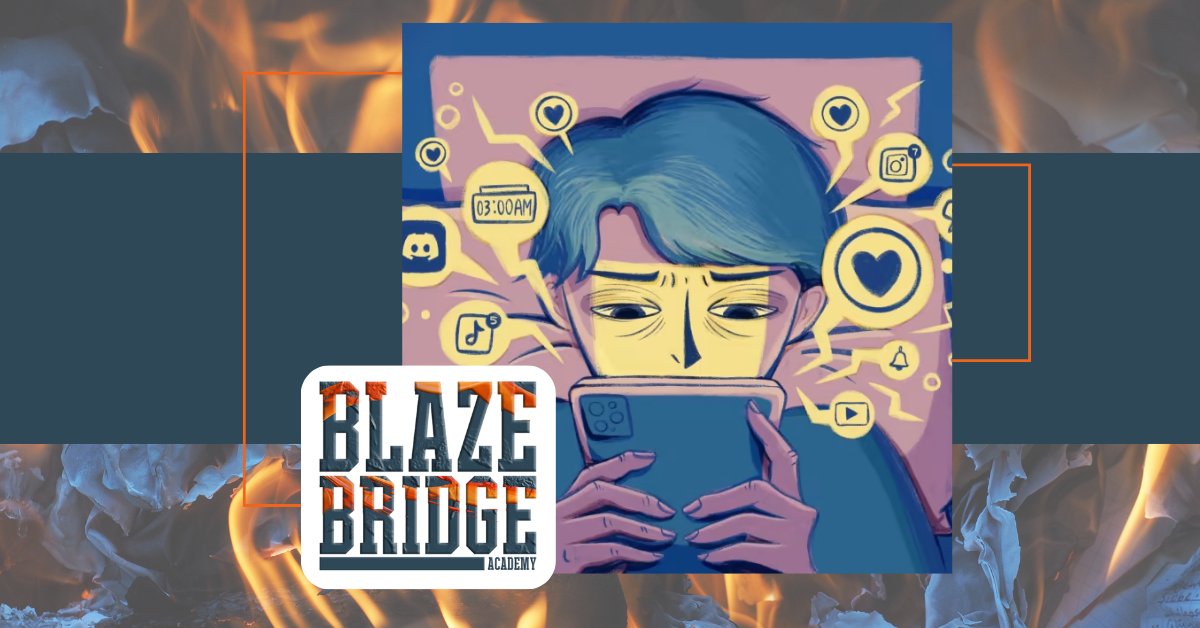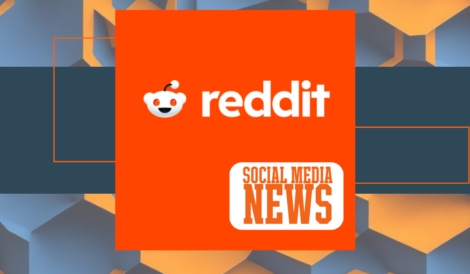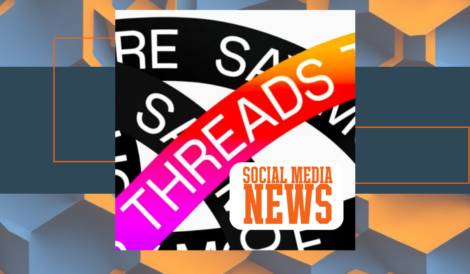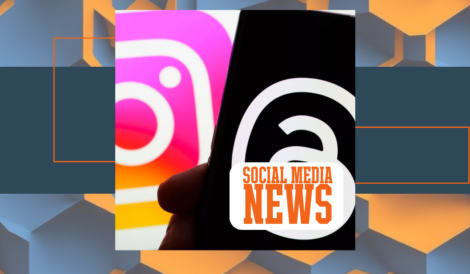In today’s digital age, social media plays a significant role in our lives. It connects us with friends, family, and even strangers from around the world. But, have you ever stopped to consider if your relationship with social media is healthy? Are you spending more time scrolling through your newsfeed than engaging with the real world? If so, you may be struggling with social media addiction.
Understanding Social Media Addiction
Social media addiction is a relatively new phenomenon that has emerged as a result of our increasing reliance on technology. It is characterized by an uncontrollable urge to constantly check and use social media platforms, despite the negative impact it may have on our mental and emotional well-being.
But what exactly drives this addiction? Let’s delve deeper into the world of social media addiction and explore its defining characteristics, the psychology behind it, and its impact on mental health.
Defining Social Media Addiction
So, what exactly is social media addiction? It can be defined as a compulsive and excessive use of social media platforms that interferes with daily life activities, such as work, relationships, and self-care. Individuals with social media addiction often experience feelings of anxiety, restlessness, and irritability when unable to access their favorite apps.
Imagine a scenario where you wake up in the morning, reach for your phone, and the first thing you do is check your social media accounts. Throughout the day, you find yourself constantly scrolling through your news feed, refreshing your notifications, and seeking validation through likes and comments. This constant need for virtual connection becomes a priority, overshadowing real-life interactions and responsibilities.
The Psychology Behind Social Media Addiction
The psychology behind social media addiction is fascinating. Many experts believe that the gratification we receive from likes, comments, and shares triggers the release of dopamine in our brains, creating a reward system. This reward system reinforces the behavior, making us crave more and more social media engagement.
Think about it – every time you receive a notification or a positive interaction on social media, you feel a sense of accomplishment and validation. This instant gratification becomes addictive, leading to a cycle of seeking more engagement to maintain those positive feelings. Over time, our brains become wired to seek out this instant gratification, leading to addictive behaviors.
The Impact of Social Media Addiction on Mental Health
While social media addiction may seem harmless, it can have a devastating impact on our mental health. Constantly comparing ourselves to others, dealing with cyberbullying, and feeling a constant need to portray a perfect life can lead to feelings of depression, anxiety, and low self-esteem.
When we scroll through our news feeds, we often see carefully curated posts and images that depict others living seemingly perfect lives. This constant exposure to idealized versions of reality can create a distorted perception of our own lives, leading to feelings of inadequacy and dissatisfaction. The pressure to maintain a certain image online can be overwhelming, causing anxiety and stress.
Additionally, social media platforms can become breeding grounds for cyberbullying. The anonymity and distance provided by the internet can embolden individuals to engage in hurtful behavior, leading to emotional distress and even trauma for the victims.
It’s crucial to recognize and address these negative effects. Seeking support from friends, family, or mental health professionals can help individuals break free from the grip of social media addiction and regain control over their lives.
So, next time you find yourself mindlessly scrolling through your social media feeds, take a moment to reflect on the impact it may be having on your well-being. Remember, real connections and experiences are what truly enrich our lives.
Identifying Signs of Social Media Addiction
Recognizing the signs of social media addiction is the first step towards overcoming it. Here are some indicators to look out for:
Physical Symptoms of Social Media Addiction
Physical symptoms such as headaches, eye strain, and disrupted sleep patterns may arise due to excessive screen time. If you find yourself experiencing these symptoms after spending extended periods on social media, it may be a sign of addiction.
Headaches can be a result of eye strain caused by staring at screens for prolonged periods. The blue light emitted by electronic devices can disrupt the production of melatonin, a hormone that regulates sleep. This disruption can lead to difficulty falling asleep and staying asleep, resulting in disrupted sleep patterns.
Eye strain is another common physical symptom of social media addiction. Constantly focusing on screens, scrolling through feeds, and reading small text can cause eye fatigue, dryness, and discomfort. It is important to take regular breaks and practice eye exercises to alleviate these symptoms.
Emotional and Psychological Indicators
Feeling restless, anxious, or irritable when unable to access social media, neglecting daily responsibilities, and losing interest in activities you used to enjoy are emotional and psychological indicators of addiction. Reflecting on your emotions and behaviors can help you determine whether social media has taken control.
Restlessness can stem from the fear of missing out (FOMO) on social media updates and the constant need to stay connected. This can lead to anxiety and irritability when unable to access social media platforms. Neglecting daily responsibilities, such as work or household chores, in favor of spending more time on social media can also indicate addiction.
Furthermore, losing interest in activities that used to bring joy and fulfillment can be a sign of social media addiction. When social media becomes the primary source of entertainment and satisfaction, other hobbies and interests may take a backseat, resulting in a decline in overall well-being.
Social and Behavioral Changes
If you notice a significant shift in your social interactions or overall behavior due to excessive social media usage, it may be a red flag. Neglecting face-to-face conversations, opting for virtual connections instead, and experiencing a decline in productivity are common behavioral changes associated with addiction.
Social media addiction can lead to a decrease in face-to-face interactions and a preference for virtual connections. Spending excessive time on social media platforms can make individuals withdraw from real-life social interactions, leading to feelings of isolation and loneliness.
Additionally, addiction to social media can negatively impact productivity. Constantly checking notifications, scrolling through feeds, and engaging in online discussions can be highly distracting, resulting in decreased focus and efficiency in other areas of life, such as work or studies.
It is important to be aware of these social and behavioral changes and take steps to regain control over social media usage. Setting boundaries, practicing digital detox, and seeking support from friends, family, or professionals can help in overcoming social media addiction.
The Role of Social Media Platforms in Addiction
Social media platforms themselves play a significant role in fostering addiction. Let’s explore the factors that contribute to this issue.
One of the key factors that contribute to addiction on social media platforms is the design itself. Social media platforms are purposely designed to keep users engaged for as long as possible. Features like infinite scrolling, personalized content, and addictive notifications are all part of the design strategy to hook users and keep them coming back for more.
Take infinite scrolling, for example. This feature allows users to continuously scroll through their feed without having to click on a “next page” button. It creates a seamless and never-ending stream of content, making it incredibly easy for users to lose track of time and spend hours mindlessly scrolling.
Personalized content is another aspect of social media design that contributes to addiction. Social media algorithms analyze our previous activities and interests to curate content specifically tailored to our preferences. While this can enhance our user experience by showing us content we’re likely to enjoy, it can also lead to a never-ending loop of content consumption. The more we engage with the platform, the more content it presents us, making it difficult to break away from the scrolling cycle.
In addition to the design, the culture of social media also perpetuates addiction. The pressure to present a perfect life, the fear of missing out (FOMO), and the constant comparison to others can all contribute to addictive behaviors. It’s important to recognize that social media often showcases an idealized version of reality. People tend to share only the highlights of their lives, creating a distorted perception of what is considered “normal” or “successful.” This constant exposure to seemingly perfect lives can lead to feelings of inadequacy and the need to constantly seek validation through social media engagement.
Furthermore, the fear of missing out is a powerful motivator for addictive behaviors on social media. Seeing others’ posts about events, parties, or experiences that we were not a part of can create a sense of anxiety and the fear of being left behind. This fear drives us to constantly check our social media feeds, afraid that we might miss out on something important or exciting.
Lastly, the constant comparison to others on social media can also fuel addictive behaviors. Seeing others’ achievements, vacations, and happy moments can make us feel inadequate or envious. This can lead to a never-ending cycle of seeking validation and trying to keep up with the curated lives of others.
In conclusion, social media platforms play a significant role in fostering addiction. The design features, personalized algorithms, and the culture of social media all contribute to addictive behaviors. It’s important to be aware of these factors and find a healthy balance in our social media usage to prevent addiction and maintain our well-being.
Strategies to Combat Social Media Addiction
Fortunately, there are practical strategies you can implement to regain control over your social media usage. Here are some effective techniques:
Setting Healthy Boundaries with Social Media
Establishing clear boundaries is essential when it comes to managing social media addiction. Set specific time limits for social media usage, create tech-free zones in your home, and prioritize face-to-face interactions. By consciously reshaping your relationship with social media, you can reduce addiction and improve your overall well-being.
Techniques for Digital Detox
Consider taking a digital detox to break free from the addictive cycle. Start by designating specific days or hours each week where you completely disconnect from social media. Use that time for self-reflection, hobbies, or spending quality time with loved ones. Embracing offline activities allows your mind to recharge and refocus.
Seeking Professional Help for Social Media Addiction
If you’ve tried self-help strategies but continue to struggle with social media addiction, seeking professional help may be beneficial. Therapists or addiction counselors can provide guidance, support, and personalized strategies to address the underlying issues contributing to your addiction. Don’t hesitate to reach out and ask for help.
Remember, social media can be a powerful tool for connection and self-expression when used mindfully. By understanding social media addiction, identifying the signs, and implementing effective strategies, you can regain control over your digital life and improve your overall well-being. Take the first step towards a healthier relationship with social media today!
—–
If you are reading this because you are interested in becoming a social media manager then you can take the first step towards an exciting career in social media management with us.
Download our FREE “How to Become a Social Media Manager PDF” now to help you get started on your journey!
You can also check out our fully accredited social media courses to get you started on your journey to becoming an exceptional social media manager.




